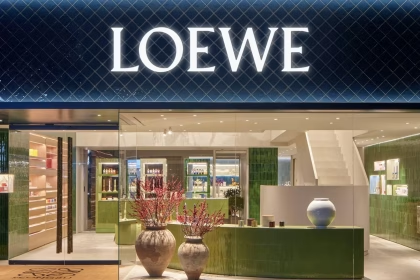A new industry report reveals worrying fulfillment issues in the world’s leading direct-to-consumer beauty brands. A shocking new audit of 110 top direct-to-consumer beauty brands reveals that the industry has significant fulfillment problems that could cost millions in lost revenue during the crucial Q4 shopping season. The comprehensive study, released by Shipfusion Inc., exposes critical gaps in how even the most recognizable beauty brands, including celebrity-backed labels, handle their post-purchase customer experience.
The Numbers Tell a Troubling Story
The audit findings paint a concerning picture of an industry struggling with basic fulfillment fundamentals. One in three orders arrived scuffed, and more than one in 10 were damaged, a particularly alarming statistic as the peak gifting season approaches. These quality control issues could severely impact customer satisfaction during the holiday shopping surge when presentation matters most.
Perhaps even more striking is how brands are missing opportunities to build lasting customer relationships. Only 18 percent of brands followed up with a post-purchase offer or incentive, while a staggering 89 percent of brands did not include free samples, despite their proven impact on driving full-size reorders. In an industry where trial and discovery are fundamental to the shopping experience, this represents a massive missed opportunity.
The international expansion picture is equally disappointing, with 44 percent of brands not offering international shipping, effectively limiting their global reach in an increasingly connected marketplace. Additionally, return policies remain customer-unfriendly across the industry; only 31 percent offer free returns, while nearly half make customers pay, and 9 percent do not allow returns at all.
Social Proof: The Missing Ingredient
One of the most surprising findings relates to social proof at checkout. Just 7 percent of brands included any form of social proof, a particularly glaring omission in a category built on community, reviews, and viral discovery. Simple additions like review counts, “bestseller” tags, or real-time purchase notifications can significantly increase buyer confidence and drive conversions, yet the vast majority of beauty brands are ignoring these powerful tools.
For a product as personal as cosmetics, skipping these cues is a missed growth lever. In an industry where trust and social validation drive purchasing decisions, this oversight could be costing brands substantial revenue.
Celebrity Brands Aren’t Immune
The audit found that even celebrity-led brands experienced major execution gaps. One popular celebrity label faced fulfillment delays and shipped products without branded packaging, while another brand’s poor packing resulted in dented and damaged products arriving at customers. This finding makes it clear: name recognition may still drive clicks, but it no longer guarantees repeat business.
The Stakes Have Never Been Higher
Brandon Luft, CEO of Shipfusion, stated, “The data makes it clear. Fulfillment is no longer just logistics. It is brand storytelling.” He added, “Beauty brands that treat shipping, packaging, and post-purchase moments as expressions of their identity will stand out. Those that do not risk falling behind, regardless of how famous the founder may be.”
This change in perspective matters as the industry heads into Q4, including busy back-to-school and holiday shopping periods. Brands face mounting pressure to deliver exceptional experiences across every touchpoint, not just product quality.
The Path Forward
The audit makes it obvious that cosmetics may seem like a small purchase, but they carry significant emotional weight and play a crucial role in customer loyalty. Shoppers increasingly expect speed, care, and presentation, especially during the year’s busiest shopping quarter.
Brands that fail to meet expectations at the fulfillment stage risk higher return rates, lost reorders, and reduced lifetime value. Those who prioritize fulfillment as a brand-building tool will be the ones who thrive.
What This Means for the Industry
The findings serve as a wake-up call for an industry that has perhaps focused too heavily on product development and marketing while neglecting the critical post-purchase experience. With customer acquisition costs rising and loyalty becoming increasingly difficult to maintain, brands can no longer afford to treat fulfillment as an afterthought.
The beauty industry stands at a crossroads. Brands that recognize fulfillment as an extension of their brand identity and invest in creating exceptional post-purchase experiences will likely lead in an increasingly competitive marketplace. Those who continue to overlook these fundamentals may find themselves struggling to maintain customer relationships, regardless of their marketing budgets or celebrity endorsements.


















